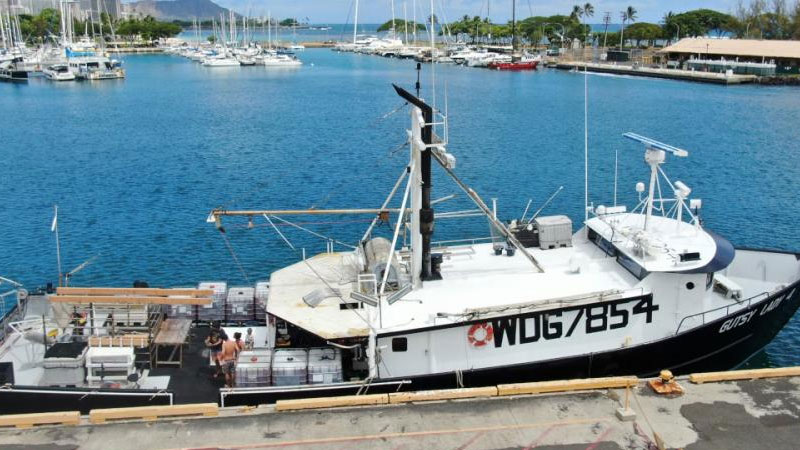
A scientific team is on a 7-week research expedition to monitor the health of world’s largest tuna fishery.
The Principle Fisheries Scientist for the Pacific Community Dr Simon Nicol says the main objective of the tagging expedition is to obtain information on the growth, movements, natural mortality and fishing mortality of the tuna, information which is required to estimate the status of the stocks and the impacts of fishing.
Dr Nicol says these tuna fisheries are worth approximately USD6 billion annually and, along with tourism, are the main income for most Pacific Island Nations.
He says with global tourism effectively shutdown due to COVID-19, the income derived from tuna is even more critical for Pacific economies.
Nicol says since 2006, SPC has tagged 452,489 tuna and 81,402 tags have been retrieved, generating the most comprehensive data set for tuna management in the world.
He says in addition to monitoring the health of the tuna stocks, the electronic tags inserted into the tuna are also being used to monitor the health of the Pacific Ocean.
Nicol say these tagged tuna are effectively monitoring the ocean for them like thousands of Remote Operating Vehicles.
Dr Nicol says the electronic tagging involves surgically inserting small battery-sized devices into the body cavities of live fish that are then released back into the ocean.
He says once deployed, the released fish then begin to record information about their location, environment and their behaviour.
Nicol says to avoid any potential for COVID-19 transmission to the remote communities of the Pacific, the cruise will not make any port calls to Pacific Island Nations.
He says the crew members, including the scientific team, are in isolation for 14 days prior to departure and have undergone COVID-19 virus testing. The vessel will then return directly to Honolulu on October 5, 2020 which is 50 days after departure.
Nicol says the team departed from Honolulu yesterday.
Stay tuned for the latest news on our radio stations


